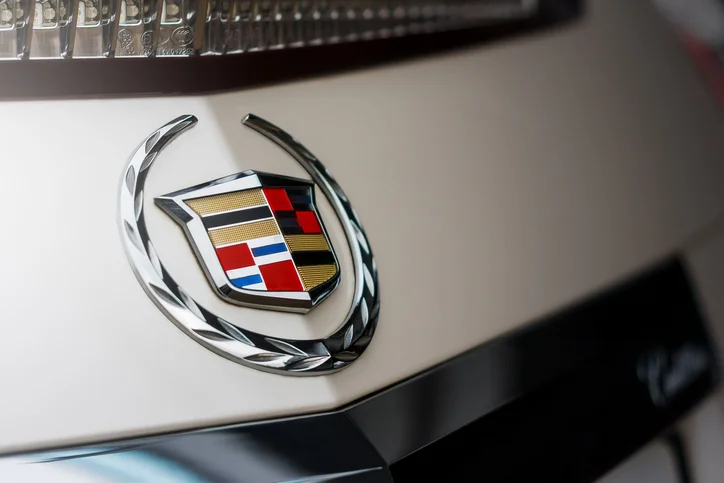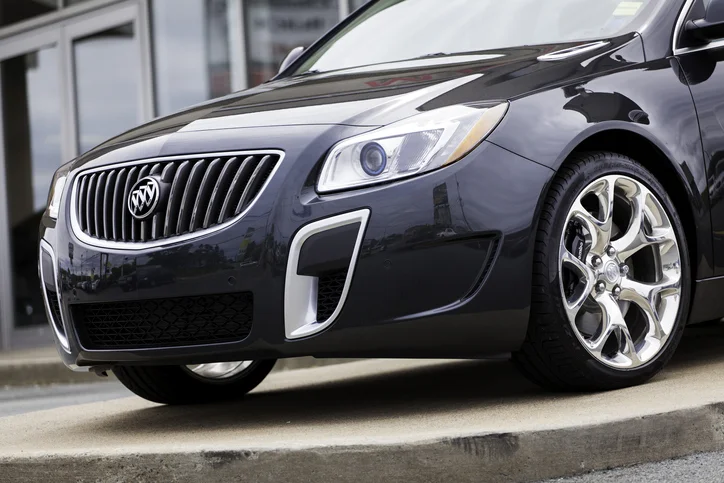You may be entitled to recover compensation through the filing of a lawsuit and we can help. Please click the button below or call us toll-free 24 hrs/day about your potential case by dialing (866) 588-0600.
Table Of Contents
- GM Airbag Lawsuit Overview
- Latest GM Airbag Lawsuit Updates
- NHTSA Reports and Statistics
- GM Airbag Injuries
- Do You Qualify for a GM Airbag Lawsuit?
- Do You Qualify for a GM Airbag Lawsuit?
- GM Airbag Recall Information
- Statute of Limitations for GM Airbag Lawsuits
- FAQs
- 1. What’s the problem with General Motors airbags?
- 2. What should I do if my vehicle is part of the GM airbag recall?
- 3. What compensation can be sought in a GM airbag lawsuit?
- 4. How can drivers determine if their vehicle’s airbags are defective?
- 5. What steps should I take if I am injured by a defective GM airbag?
- 6. Can I join a class action lawsuit if I was affected by defective GM airbags?
- 7. How can an experienced airbag lawyer help with my case?
- Get Your Free GM Airbag Lawsuit Evaluation From Our Lawyers
GM Airbag Lawsuit Overview
GM airbags have failed to deploy or deployed too late in thousands of car crashes across the U.S.
This problem has been linked to faulty ignition switches that can shut off the engine while driving, thus preventing airbags from deploying.
According to the National Highway Transportation Safety Association (NHTSA), from 1990 to 2007, the deaths of 284 Americans, including 180 children, were due to defective airbags, with thousands of non-fatal injuries also reported [1].
Latest GM Airbag Lawsuit Updates
- September 2023 – After an exhaustive investigation, NHTSA issued a warning for 52 million airbags installed in General Motors (GM) vehicles and models from 11 other automakers. These airbags present a significant safety risk to drivers and passengers, prompting mandatory recalls [2].
-
August 1, 2023 – General Motors announces a recall of just over 900 older vehicles worldwide due to Takata air bag inflators that could rupture after an incident in Brazil. This is part of the ongoing effort to address the risks associated with Takata airbags, which have caused the largest series of auto recalls in U.S. history. At this point, GM had already spent $1.2 billion replacing Takata airbags in 7 million vehicles by 2020 [3].
-
November 25, 2020 – GM reveals plans to recall millions of Chevrolet, GMC, and Cadillac trucks and SUVs to replace faulty Takata airbags. This comes as part of the largest and most complex safety recall in U.S. history, affecting 67 million airbags across 19 automakers. By this time, 88% of recalled airbags had been replaced, but millions remained on the road [4].
-
2020 – The National Highway Traffic Safety Administration (NHTSA) expands its national recall to include over 63 million Takata airbags. GM ramps up its recall efforts, and the urgency of the recall is highlighted by the “do not drive” warnings for certain vehicles at higher risk of airbag explosion. This year marks a significant escalation in the recall campaign [1].
-
2018 – Takata agrees to create a trust fund to compensate victims of exploding airbags, following multiple lawsuits. The U.S. Department of Justice announces a $1 billion criminal penalty against Takata, including $850 million for automakers, $125 million for victims, and a $25 million fine. In February, Takata settles with state attorneys general for $650 million, with the funds left for injured consumers [5] [6].
-
2017 – Takata pleads guilty to deceiving automakers about the safety of its airbags and files for bankruptcy. The company agrees to pay $1 billion to resolve the U.S. investigation, with a large portion allocated to automakers and victims. This year also sees the recall and repair efforts continue to expand as more vehicles are identified as containing defective airbags [7].
-
May 4, 2016 – NHTSA announces recall campaigns for an additional estimated 35-40 million Takata inflators, adding to the already 28.8 million inflators previously recalled. This brings the total number of affected vehicles to over 40 million, making it the largest auto recall in U.S. history at that time [1].
-
November 18, 2014 – NHTSA orders Takata to initiate a nationwide airbag recall. Ten automakers, including GM, recall hundreds of thousands of cars equipped with potentially faulty Takata airbags. This marks the beginning of widespread public awareness and regulatory action regarding the Takata airbag defect [8].
NHTSA Reports and Statistics
The NHTSA investigation linked defective airbags to multiple injuries and fatalities:
- Reported Injuries: At least 7 cases were reported in the U.S. and Canada, including serious trauma caused by shrapnel from exploding inflators.
- Confirmed Fatalities: Two deaths have been directly connected to these defective airbag systems.
- Vehicles Affected: More than 30 million GM vehicles globally have been recalled due to defective ignition switches and airbags.
- Linked Fatalities: At least 124 deaths are tied to ignition switch failures, primarily because airbags failed to deploy during crashes.
- Serious Injuries: Over 274 injuries have been reported, ranging from traumatic brain injuries to spinal damage.
GM Airbag Injuries
Airbag malfunctions can cause a range of serious injuries when they fail to deploy or deploy incorrectly.
- Fractures and Dislocations: Broken bones or dislocated joints requiring immobilization, surgery, and physical therapy.
- Burn Injuries: Chemical, friction, or heat burns ranging from first-degree to third-degree requiring wound care and possibly skin grafts.
- Brain Injuries: Concussions and more severe traumatic brain injuries causing headaches, dizziness, and cognitive impairment.
- Facial Injuries: Lacerations, broken bones, and jaw fractures requiring surgery or cosmetic procedures.
- Neck and Spine Trauma: Whiplash to permanent spinal cord damage requiring physical therapy, surgery, or lifelong care.
- Nerve and Soft Tissue Damage: Injuries causing chronic pain and limited mobility.
- Internal Injuries: Potentially life-threatening internal bleeding and organ damage requiring emergency surgery.
- Deep Lacerations: Cuts from exploding airbag inflators ranging from superficial to deep wounds requiring surgery.
Do You Qualify for a GM Airbag Lawsuit?
You may qualify for a GM airbag lawsuit if:
- You were driving or were a passenger in one of the affected GM vehicles.
- Your vehicle’s airbag failed to deploy or deployed improperly during an accident.
- You suffered injuries as a result of the airbag malfunction.
- The injuries required medical treatment or hospitalization.
- You can provide medical documentation linking your injuries to the airbag malfunction.
Evidence Required for a GM Airbag Lawsuit
- Proof of Ownership: Vehicle registration or title.
- Incident Reports: Police reports and accident details.
- Medical Records: Proof of treatment for injuries caused by airbag malfunctions.
- Claim Form: Completed official claim form outlining your damages.
- Communication Records: Copies of correspondence with GM or legal representatives.
Damages You Can Recover
- Medical expenses
- Lost wages
- Pain and suffering
- Rehabilitation costs
- In some cases, punitive damages to penalize the manufacturer for negligence
Do You Qualify for a GM Airbag Lawsuit?
You may qualify for a GM airbag lawsuit if:
- You or a loved one were involved in an accident while driving or riding in a GM vehicle manufactured between 1990 and 2018.
- The vehicle’s airbag either failed to deploy, deployed with excessive force, or exploded during deployment.
- You or your loved one suffered injuries or death that can be linked to the airbag malfunction.
- The accident occurred within the applicable statute of limitations for your state (typically 2-4 years).
Evidence Required for a GM Airbag Lawsuit
To successfully pursue a GM airbag lawsuit, you’ll need to gather several types of evidence:
- Vehicle Documentation: Vehicle registration, proof of ownership/title, and recall notices.
- Accident Reports: Police reports and detailed accident information.
- Medical Records: Documentation of injuries and treatments related to the accident.
- Expert Testimony: Technical analysis linking the airbag defect to your injuries.
- Photographic Evidence: Pictures of the accident scene, vehicle damage, and injuries.
- Communication Records: Copies of all correspondence with GM, dealerships, or insurance companies.
Damages You Can Recover
Successful GM airbag lawsuits may result in compensation for:
- Medical Expenses: Current and future costs related to treating your injuries.
- Lost Wages: Income lost due to inability to work after the accident.
- Pain and Suffering: Physical pain and emotional distress caused by your injuries.
- Rehabilitation Costs: Expenses for physical therapy and rehabilitation services.
- Disability Accommodations: Costs for home or vehicle modifications needed due to permanent injuries.
- Wrongful Death Damages: Funeral expenses, loss of companionship, and lost financial support in cases of fatal injuries.
- Punitive Damages: Additional compensation to punish particularly negligent behavior by GM.
GM Airbag Recall Information
The NHTSA has issued a warning for 52 million airbags installed in General Motors vehicles and models from 11 other automakers.
These airbags present a significant safety risk due to defective inflators that may rupture during deployment, causing metal debris to be forcefully ejected into the passenger compartment.
Affected Vehicle Models Include:
Cadillac
- Escalade (1998-2000, 2002-2006, 2007-2014)
- Escalade ESV (2007-2014)
- Escalade Hybrid (2009-2013)
- SRX (2004-2009, 2010-2014)
GMC
- Yukon (1999-2014)
- Yukon XL (2000-2014)
- Envoy (1998-2000, 2002-2009)
- Acadia (2007-2014)
- Terrain (2010-2014)
Chevrolet
- Multiple models including Tracker, Suburban, Blazer, TrailBlazer, Traverse, Silverado, Tahoe, Equinox, Trax, GMT800 Heavy Duty Truck, C1500 and K1500, Sierra, Astro, Avalanche, Express Van, Colorado, Caprice, Lumina, Impala, HHR, and Camaro (various years between 1990-2015).
Buick
- Encore (2012-2014)
- Enclave (2008-2014)
- Rainier (2004-2014)
Statute of Limitations for GM Airbag Lawsuits
- General Deadline: Claims must be filed within three years of the incident or as per your state’s statute of limitations.
- Incidents before April 10, 2018: Filing deadline was April 10, 2021.
- Incidents after April 10, 2018: File within three years of the incident date.
Related Articles:
FAQs
1. What’s the problem with General Motors airbags?
GM airbags have failed to deploy or deployed too late in thousands of car crashes. This problem has been linked to faulty ignition switches that can shift from on to off, shutting off the engine while driving and preventing airbags from deploying.
2. What should I do if my vehicle is part of the GM airbag recall?
Check your VIN on the NHTSA VIN Lookup Tool or GM’s recall page, contact a certified GM dealer, gather essential documents, schedule and complete repairs, and verify post-repair work with written confirmation.
3. What compensation can be sought in a GM airbag lawsuit?
Compensation can include medical expenses, lost wages, pain and suffering, rehabilitation costs, and other related expenses. In some cases, punitive damages may also be awarded to penalize the manufacturer for negligence.
4. How can drivers determine if their vehicle’s airbags are defective?
Drivers can check for recall notices from GM, consult with their dealership, and monitor any unusual airbag warning lights or malfunctions during vehicle operation.
5. What steps should I take if I am injured by a defective GM airbag?
Seek immediate medical attention, document the injury and treatments, retain medical records and vehicle information, and consult a lawyer to discuss potential legal action and compensation.
6. Can I join a class action lawsuit if I was affected by defective GM airbags?
Yes, individuals affected by defective GM airbags may join a class action lawsuit if one is available, allowing multiple plaintiffs to combine their cases for stronger collective legal action.
7. How can an experienced airbag lawyer help with my case?
An experienced lawyer can investigate your claim, counsel you on whether a lawsuit can be filed, monitor deadlines, track proposed settlements, file claims, and provide general legal advice throughout the process.
Get Your Free GM Airbag Lawsuit Evaluation From Our Lawyers
Time is limited to pursue legal action regarding GM airbag lawsuits. Claims must be filed within three years of the incident or according to your state’s statute of limitations.
Our services include:
- Free, confidential consultations
- No upfront costs or fees
- Payment only if we win your case
References:
- https://www.nhtsa.gov/vehicle-safety/takata-recall-spotlight
- https://www.cbsnews.com/news/arc-delphi-airbag-recall-52-million-nhtsa/
- https://www.cnn.com/2023/08/01/business/general-motors-takata-recall
- https://www.consumerreports.org/cars/car-recalls-defects/takata-airbag-recall-everything-you-need-to-know-a1060713669/
- https://www.consumernotice.org/legal/takata-airbag-lawsuits/
- https://www.consumerprotect.com/product-liability/airbag-lawsuits-settlements/
- https://www.classaction.com/takata-airbags/
- https://en.wikipedia.org/wiki/Takata_Corporation

 Published by
Published by 




